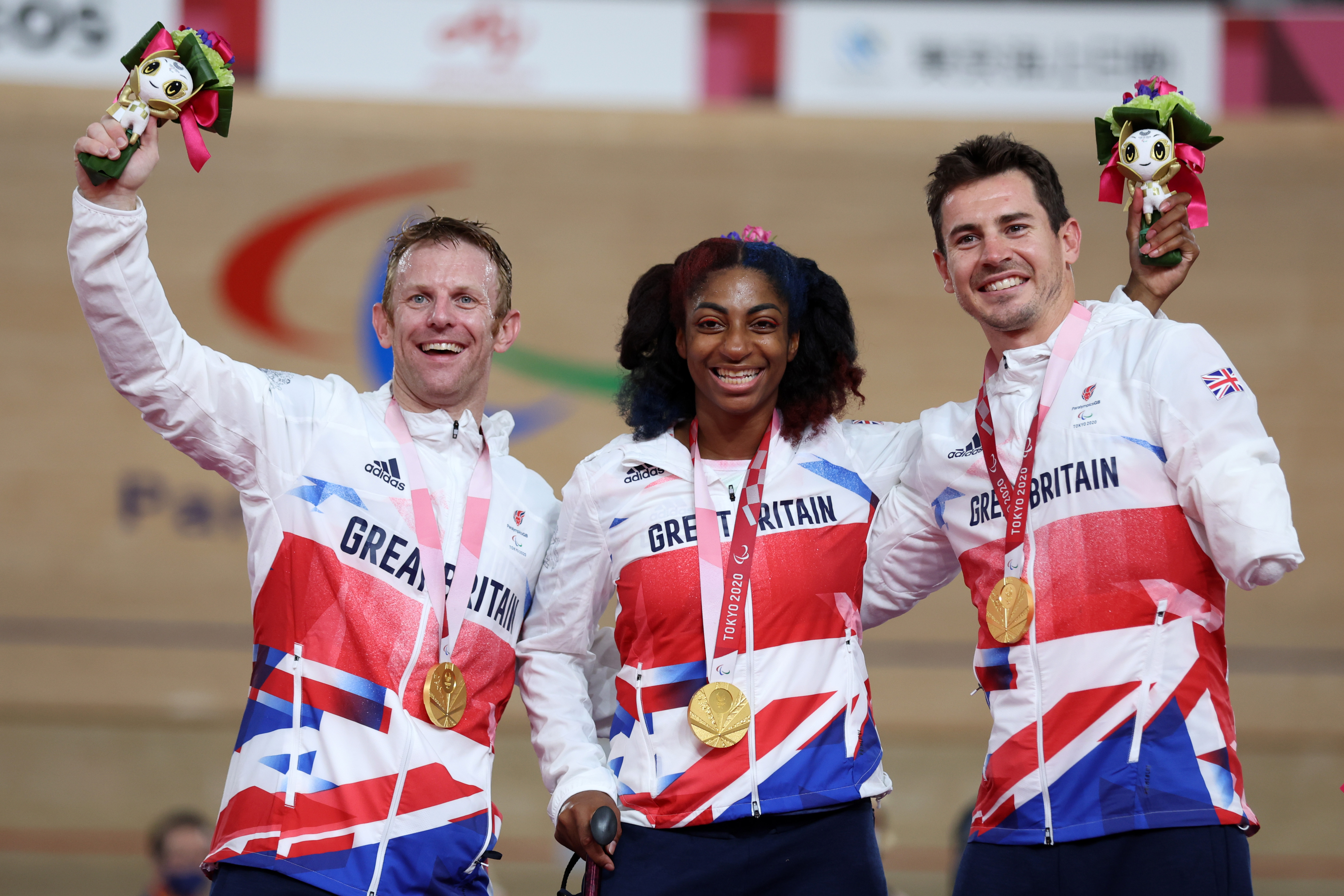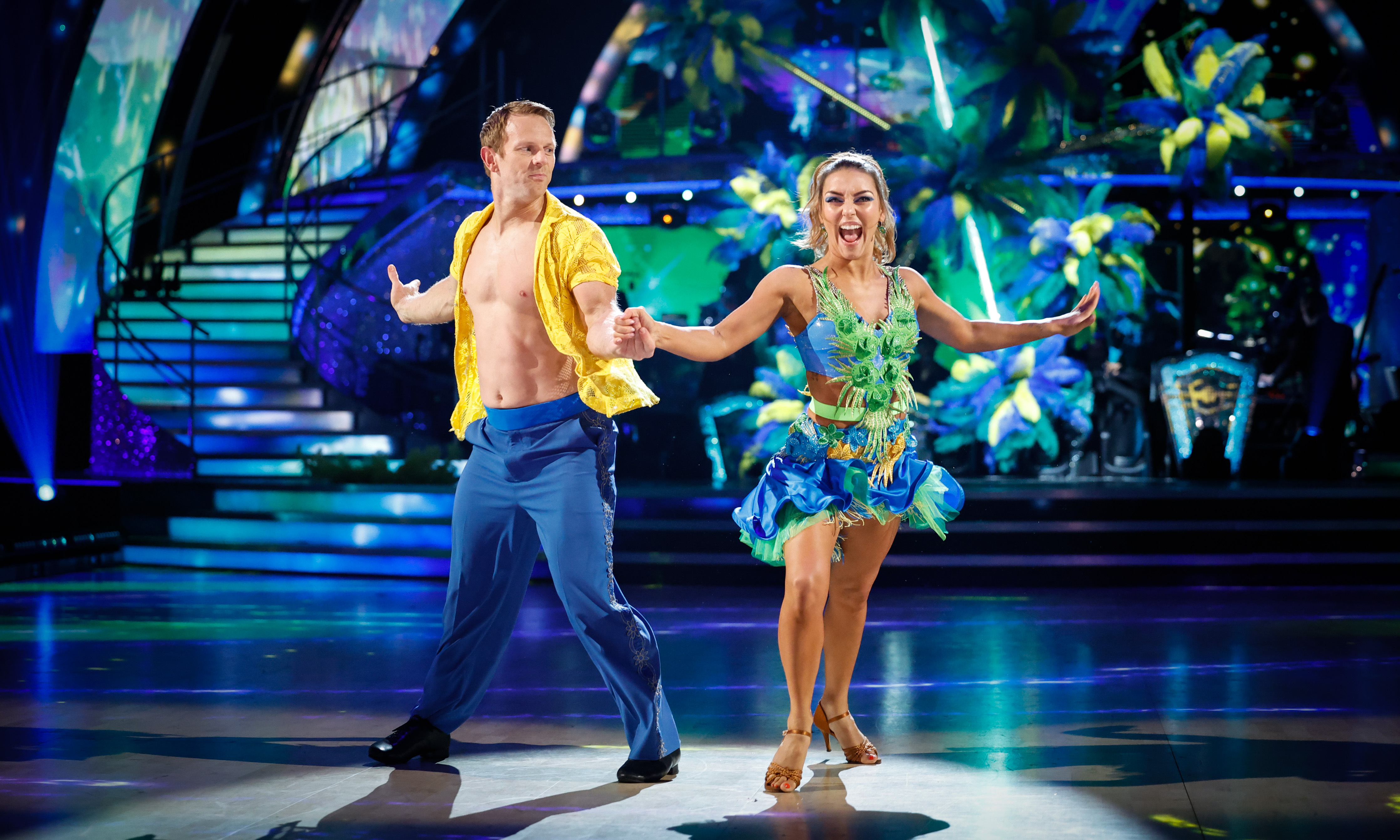
Jody Cundy CBE is an eight-time Paralympic gold medallist and 20-time track cycling world champion. A former swimmer, Cundy competed in his first Paralympics in 1996, and went on to win three golds in the pool before turning to cycling in 2006. He is known as the king of the kilometre time trial, having won 14 world titles in the discipline.
What was your first bike?
It was a yellow and black BMX with stabilisers on. I remember I broke the stabilisers, and my dad was a welder, so he took them into work. But I just loved riding my bike, and when he came home, I was riding the bike without stabilisers. He fixed them for no reason at all. I was maybe six years old.
What’s your earliest memory of watching cycling?
I was interested in Barcelona [Olympics 1992]. [Chris] Boardman and the Lotus bike kind of sparked my interest. I remember sending Lotus a letter saying I had a design for a wheel with dimples in it, like a golf ball. They sent me a letter back saying, ‘We don’t think this would work on a wheel.’ It makes me laugh now everytime I see a Zipp wheel with dimples. It’s like, ‘I came up with that years ago!’
After Barcelona, I got interested in the Hour Record. I followed Chris, Graeme Obree, Miguel Induráin, Tony Rominger in that heyday of the Hour Record. I always wanted to try out the track, but I never had the opportunity to. That was during my swimming career.

Why did you transition from swimming to cycling?
I was getting to the end of my swimming career. I had maybe one more Paralympic Games in me. I was training for the Worlds that year, 2006, and if I had gone well there, Beijing would have been my last swimming championships [in 2008]. But in the timespan between 2005 and 2006, I had a disability open day at Newport Velodrome, and I loved it.
I found out about sessions that go on in Manchester, and when I went up for a swimming training camp, Sarah Storey said to me, ‘I’m going on a drop-in session, do you want to join in?’ I brought my helmet with me, jumped on the track, and loved it again.
I then got persuaded to enter Nationals. You didn’t need any qualifying time or anything, just a bike, a licence and the will to do it. I went to a bike shop, got a deal on a bike, and that was it. I entered Nationals, did a flying 200m, and broke the British record.
I was still training six days a week swimming then, but once a week I’d go to Newport and train with the guys down there. The coach of the guys I trained with sent times off times to British Cycling, and they came back one day to say I was going faster than anybody on the squad.
What is it about the kilo that appealed to you?
I think it just suits my physiology. In swimming, I was a 100m butterfly swimmer, which is 60 seconds of effort. A kilo’s just over 60 seconds, so it kind of fitted nicely. Plus, you get to go fast and use all the cool kit in the kilo. I think that’s what appealed to me.

Is there one moment in your career that stands out to you?
Team sprint, Tokyo [Paralympics in 2021]. Every time you do a race, you go, ‘Ah I wish I had done this to make it better.’ You never do the perfect race. But that was the perfect race. I can’t think of anything I would have done in that race that would have made me go any faster, and Jaco [van Gass] and Kadeena [Cox] were exactly the same. We brought it all together, and we did the time that theoretically we thought we might be able to do if everything went well. That’s the time we won in in the Games.
What’s the best place your cycling career has taken you?
I’ve done some cool stuff, but I can’t think of anything off the top of my head that’s blown me away. I did get to borrow a Porsche for four days. I posted on Twitter when I got home from Rio [Paralympics in 2016], and I was like, ‘Am I getting old, but I quite fancy getting a Porsche?’ I knew I’d never be able to afford one. But one of the Porsche dealers in Colchester, his brother was the manager there, he got in touch me with and said, ‘If you want to drive a Porsche, I can let you borrow one of our test cars.’ I had a whole long weekend driving a Porsche and did like 500-600 miles in it. It was amazing.

You were on the last season of Strictly Come Dancing. How did that impact your cycling?
I actually came back stronger off the back of Strictly than I did when I went into it. Mainly because of the stability and balance that I got from all the dancing and all the dance exercises.
I loved it. We were practising Monday to Thursday, then Friday we’d go down to London and do rehearsals. We’d do three run-throughs on the dance floor to make sure you’ve got all the positions, so the cameras know where you’re going. Then on Saturday we did two more run-throughs in the morning with the band, then a full dress rehearsal, then the show at night and the results show all in one. Sunday off, and then back in again on Monday.
You’ve been with Team GB for almost 30 years. What’s the key to staying motivated to train and at the top of your game?
Every time I manage to get to a Paralympics or a World Championships, when I succeed in doing it, the feeling is, ‘I really enjoyed that.’ I can’t imagine not doing it. I was thinking about retiring in London [2012], and then London happened and I was like, ‘Well, I’m going to be in Rio. That’s four more years.’ The motivation was there, and I still feel like I’m getting better.
I just keep trying to reinvent myself and not overcook it. [My advice is] know what you’re capable of, know what motivates you, and just try to keep it fresh all the time. At the end of the day, most of the stuff we do boils down to stuff we did 20 years ago, but it’s about trying to do it in a different way, or giving yourself different challenges. It’s just about having fun on the bike.







